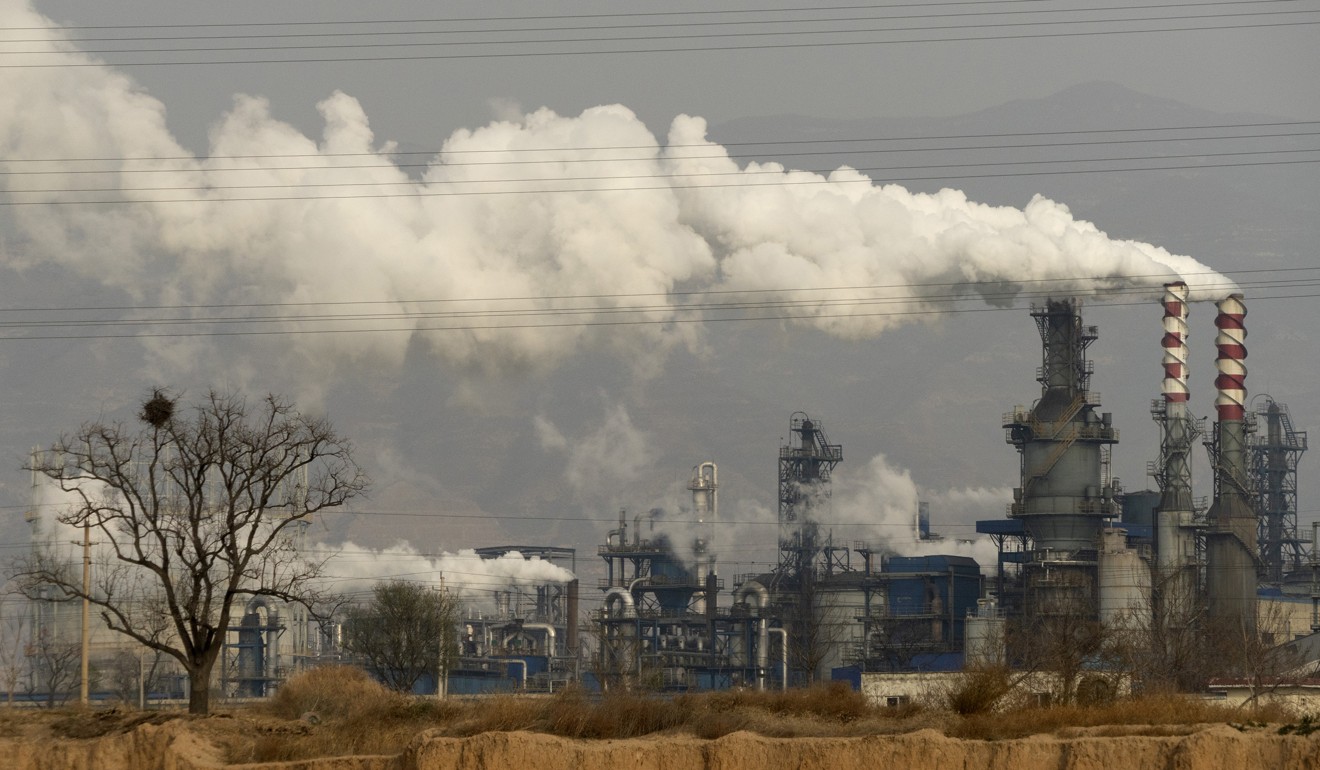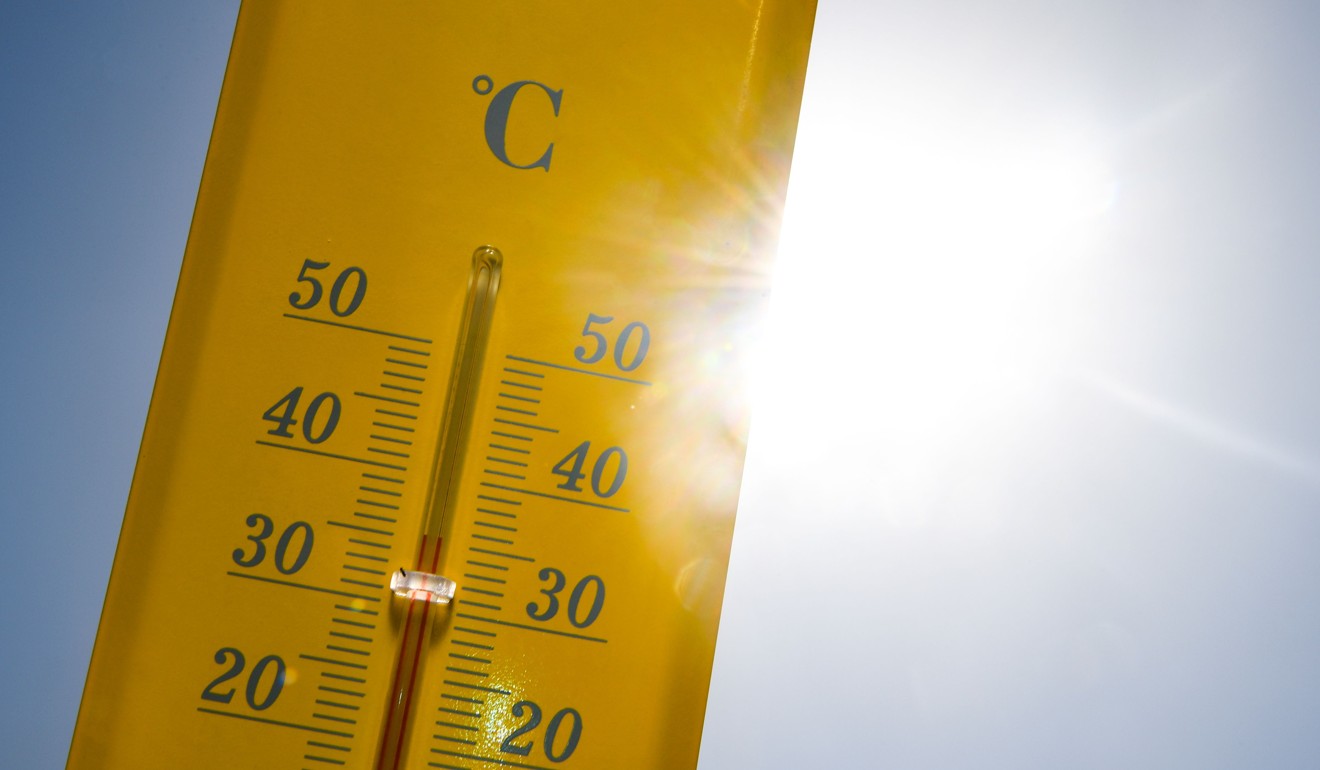China and EU try to forge common front to lead fight against climate change
- Cooperation between Brussels and Beijing will take on renewed importance at this month’s Madrid summit after the US exited an agreement to limit emissions
- Governments are increasingly aware of the need to ‘fight the same battle’, but must now find ways to translate this concurrence into action

As world leaders converged on Spain this week to discuss the next steps in fighting man-made climate change, China and the European Union have been looking for ways to lead the fight against the “most important” challenge they face.
China is the world’s largest producer of emissions blamed for global warming, while the EU is ranked third after the United States – heightening the importance of their cooperation after Washington pulled out of a previous commitment to cut its use of carbon-based fossil fuels.
The two-week UN climate summit in Madrid, known as COP25, will attract representatives from 197 countries.
Most world leaders are increasingly concerned about the changing climate and the threat it brings to food supplies as well as rising ocean levels that could flood coastal cities and force mass migrations.
Scientists this year said temperatures were rising faster than anticipated and the World Meteorological Organisation warned on Tuesday that the past decade may be the hottest 10 years on record.
“Now we are fighting the same battle,” said Spain’s ambassador to China, Rafael Dezcallar, who hosted a discussion for European diplomats in Beijing last week ahead of the summit.
“In the future, this is the most important cooperation between China and the EU, the common fight against climate change,” he said.
Nicolas Chapuis, the EU ambassador to China, told the event that China was setting an example in dealing with the challenges of reducing its use of fossil fuels.
“Today, those who lead [in reducing emissions] are member states of the EU, the EU itself and China,” he said. “China has done what it promised to do in Paris,” he added, referring to the 2015 agreement in the French capital to cut carbon emissions. “But some countries have not done what they proposed.”
The remark about countries failing to follow through on their Paris commitments was seen as a swipe at the US, following President Donald Trump’s decision to pull out of the accord.
Dezcallar said the American withdrawal “obviously concerns us all”, but argued that the EU and China could still lead by example.
“We cannot make up for the lost participation of other countries, but we can move the issue forward,” he said.

The Paris Agreement calls for countries to limit the global temperature increase to between 1.5 and 2 Celsius – a level scientists say is needed to avoid some of the most extreme consequences of climate change, such as more frequent droughts, hurricanes and floods.
The UN Emissions Gap report, published a week before the Madrid summit opened on Monday, said both the EU and China were projected to “overachieve their commitments” – with China on course to beat the mandatory target of reducing its overall level of emissions by 2030.
Both sides have also worked to strengthen their working relationship in this area, with Chinese President Xi Jinping stressing the importance of cooperation during a visit by his French counterpart Emmanuel Macron last month.
In a phone call to the new European Commission President Ursula von der Leyen on Sunday, Chinese Premier Li Keqiang promised China would “work with the international community, including the EU side, to tackle climate change”.
However, despite the broad agreement on the need to tackle this challenge, environmentalists warn that political leaders have to show the will to translate this concurrence into action.
The two sides also disagree on some of the solutions. China is continuing to build more coal plants, despite an earlier commitment to increase its use of renewables, and it also opposes the EU’s plans for a carbon tax.
“Experience suggests that negotiations between Beijing and Brussels hardly go smoothly,” said Li Shuo, senior global policy adviser at Greenpeace East Asia.
“There’s still a disparity in what each side wants, and this divergence needs to be bridged to achieve higher climate targets.”
The tax, suggested by former EU climate commissioner Frans Timmermans in October, would slap tariffs on products from countries that are failing to reduce carbon emissions.
But China criticised the move as a roadblock to global trade and warned that it – combined with the US withdrawal – would “severely harm the will and confidence of the global community to deal with climate change”.

A carbon border tax could help prompt more proactive climate policies around the world, but risks a trade conflict, said Benjamin Görlach, an environmental economist with the Berlin-based Ecologic Institute.
However, he said the EU may now be more willing to take this risk given the Trump administration’s willingness to use tariffs in pursuit of its own aims.
Ranping Song, a climate specialist with the World Resources Institute in Washington, said the EU and China could decarbonise domestically without the need for cross-border taxes.
“The EU and China should figure out an approach that will provide more incentives … for greening world trade,” said Song, who also contributed to the UN’s Emissions Gap Report.
Song added that the EU-China relationship was even more important now that the US had quit the climate talks and Beijing was facing an economic slowdown and the pressure of a trade war.
“Under the current political climate, it is especially important for the two big emitters that account for more than a third of global emissions to take some bold steps and help lead the world together,” he said.
Additional reporting by Wendy Wu